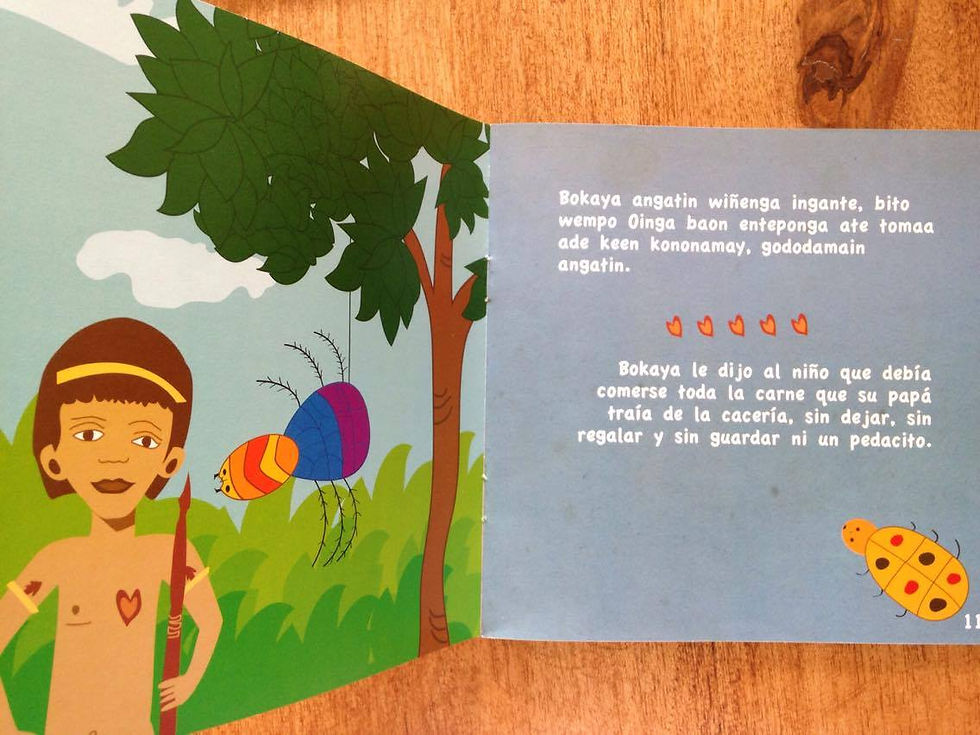Singing, dancing & drawing are definitely not my strengths but I am patient, consistent, and creative. I love languages and deciphering culture through their use and practice, I'm by far more of a listener than a talker.
I’m drawn to the many forms storytelling can take—whether it’s a documentary, an educational children’s series, or a short, clever reel. What captivates me most is the profound power and ability of images to shape perception. How we choose to use that power is one of my greatest concerns. Visual storytelling is a deeply influential medium, and with that influence comes a strong sense of responsibility for the stories I choose to tell.
The impact of storytelling also lies in the experiential practice that unfolds when people come together—whether to make, watch, or discuss a film, to engage in a workshop, festival, conference & even a picnic. It´s the encounters that create touching and life-changing experiences.
Here are some facts
Born in Quito, Ecuador, fluent in Spanish, French, and English, with some rusty German, the foundation for a multicultural and multilingual career was set early on. For the past 12 years, the role of inbound coordinator for Portland State University's Speech-Language Pathologists summer program has provided a bridge between education and international collaboration.
With a background in film and a Master’s degree in visual anthropology, the professional journey began in 2002 as an assistant director in Ecuador’s film and advertising industry, eventually transitioning into advertising direction. That experience sparked a shift in 2008 toward cultural research and project development in collaboration with indigenous communities across Ecuador, leading to the creation of Ecuador’s first Deaf film festival.
The documentary El Secreto de la luz marked a return to film-making, followed by the opportunity to write and direct TV series for children, which aired on national television. During the pandemic, work focused on an interactive web documentary exploring the arts and crafts of elderly artisans in Quito’s historic center. Most recently, the TV series on the use of public space and road safety for young adults was completed.
As writer and producer of the award-winning documentary Eco de Luz – Light Memories, which premiered at IDFA in 2024, storytelling continues to be a vehicle for visibility and reflection.
















































A chronological description of my work with links to various projects
The last of my audiovisual projects is Eco de Luz - Light Memories where as writer and producer I supported Misha Vallejo in sharing his biographical story on photography, father absences, and family secrets.
In (2022-23) I researched and directed a youth series on road safety and the uses of public space. It was filmed in Santo Domingo de los Tsa'chilas and is called Juégate la calle. It is being broadcasted on a local channel, Zaracay TV, and can be seen on Social Media like Facebook, Instagram, tiktok and youtube.
I also directed and wrote the children's series El equipo invincible, produced by Zonacuario for the United for healthy children from Nestle. We created 3 seasons. A chapter was nominated to the Prix Jeunesse 2018 festival in Munich, Germany. Previously I directed the TV series Atrapasueños and El Diván. I produced and co-wrote the documentary El Secreto de la luz, a project that won the DocTv Latin America award for Ecuador. I have been a teacher at UDLA University in the BA of animation and film.
I created and ran Así Dicen Mis Abuelos. It is a project that collects, shares and disseminates the ancestral knowledge and oral tradition of Ecuador. The first and most important step of this project is the field work that through art aims to link the community in a process that works the memory, revitalizes the language and promotes intergenerational relationships. From this I edited a series of books and generated films in collaboration with the communities. In 2012 this project received an honorable mention for best children's publication from the Alas-BID program. The materials were returned to the communities through an intercultural festival. ADMA works hand in hand with Oralidad Modernidad, which seeks to document and revitalize the languages of Ecuador.
Festival Cine Sordo (2012), Deaf Film Festival was the first of its kind in Latin America. Intended to bring together the deaf and hearing communities. It was held in Quito, Guayaquil and Cuenca and included film screenings, an acting workshops, a subtitling workshop, talks and screenings for schools, as well as two days of lectures at the Pontificia Universidad Católica de Quito.
Atrapasueños is a children's series produced for Educa TV that premiered on November 23, 2015. Children from different corners of Ecuador narrate dreams they´ve had and these become animations. Ecuador´s cultural diversity can be seen, heard and felt. Look for it on youtube.
El Diván is a series for young people and adults about interculturality as part of everyday life. It was broadcasted nationally through many Ecuadorian tv chains. It can also be seen online on youtube or in the links on this web page.
And finally a synopsis of El secreto de la luz a film I wrote and produced. A look at 20th century Ecuador narrated through the work of the Swedish explorer Rolf Blomberg: his books and films, his photographs and illustrations are the archival material that make up this documentary. Blomberg arrived in 1934 to study the Galapagos Islands and destiny brought him back as many times as necessary to make Quito his center of operations. He explored Ecuador like few others and created a complex and exciting work whose re-reading, today, offers us an unpublished portrait of this country.


